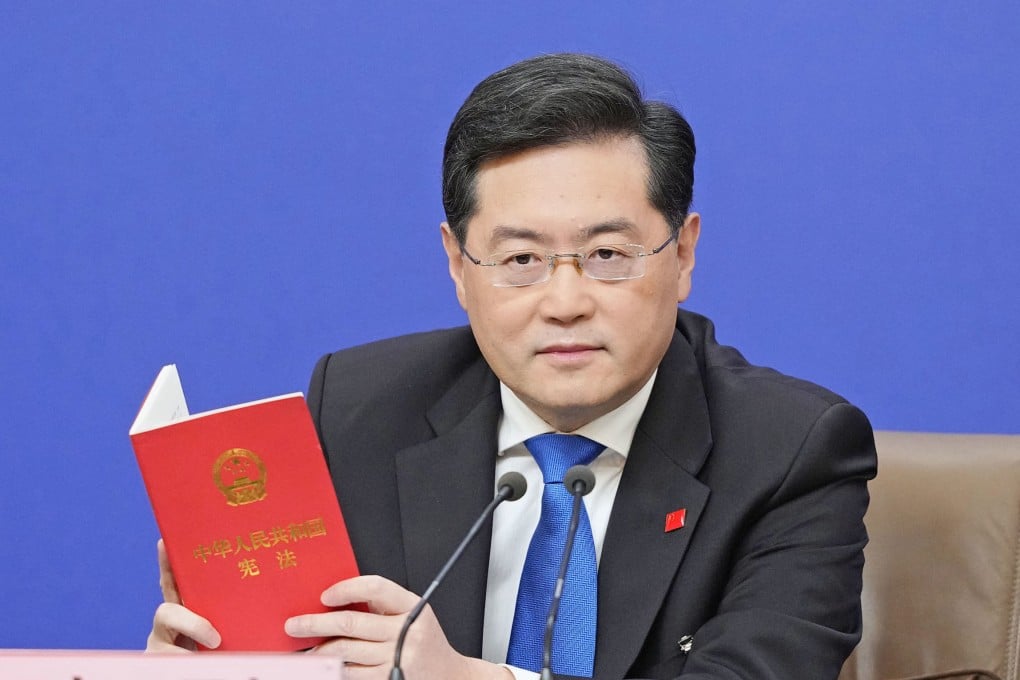Advertisement
China’s ‘two sessions’ 2023: Qin Gang named state councillor in latest move marking foreign minister’s rapid rise
- Two-step promotion for Qin within months completes diplomatic reshuffle as Beijing underlines global leadership role
- Qin, 56, seen as an ally of President Xi Jinping, is now the youngest ‘leader of party and state’
Reading Time:4 minutes
Why you can trust SCMP
12

Chinese Foreign Minister Qin Gang has been appointed as a state councillor, in a consolidation of President Xi Jinping’s new foreign policy line-up as Beijing presents itself as a global leadership alternative to the United States.
The move also completes the reshuffle of top diplomatic personnel at the start of Xi’s historic third term.
Qin was appointed to the post along with four other members of the State Council, the central government’s executive branch.
Advertisement
The promotions of Wu Zhenglong, Shen Yiqin, Li Shangfu and Wang Xiaohong, as well as Qin, were endorsed by the National People’s Congress (NPC) – China’s top legislative body – on Sunday, the penultimate day of its key annual session.
Wu was also named secretary general of the State Council, while Shen – a former Communist Party chief of Guizhou province – became the highest-ranked woman in China with her promotion.
Advertisement
Li Shangfu was earlier named as China’s defence minister and Wang also holds the post of public security minister.
Qin, who had served as China’s ambassador to the US since July 2021, was named foreign minister just over two months ago.
Advertisement
Select Voice
Select Speed
1.00x